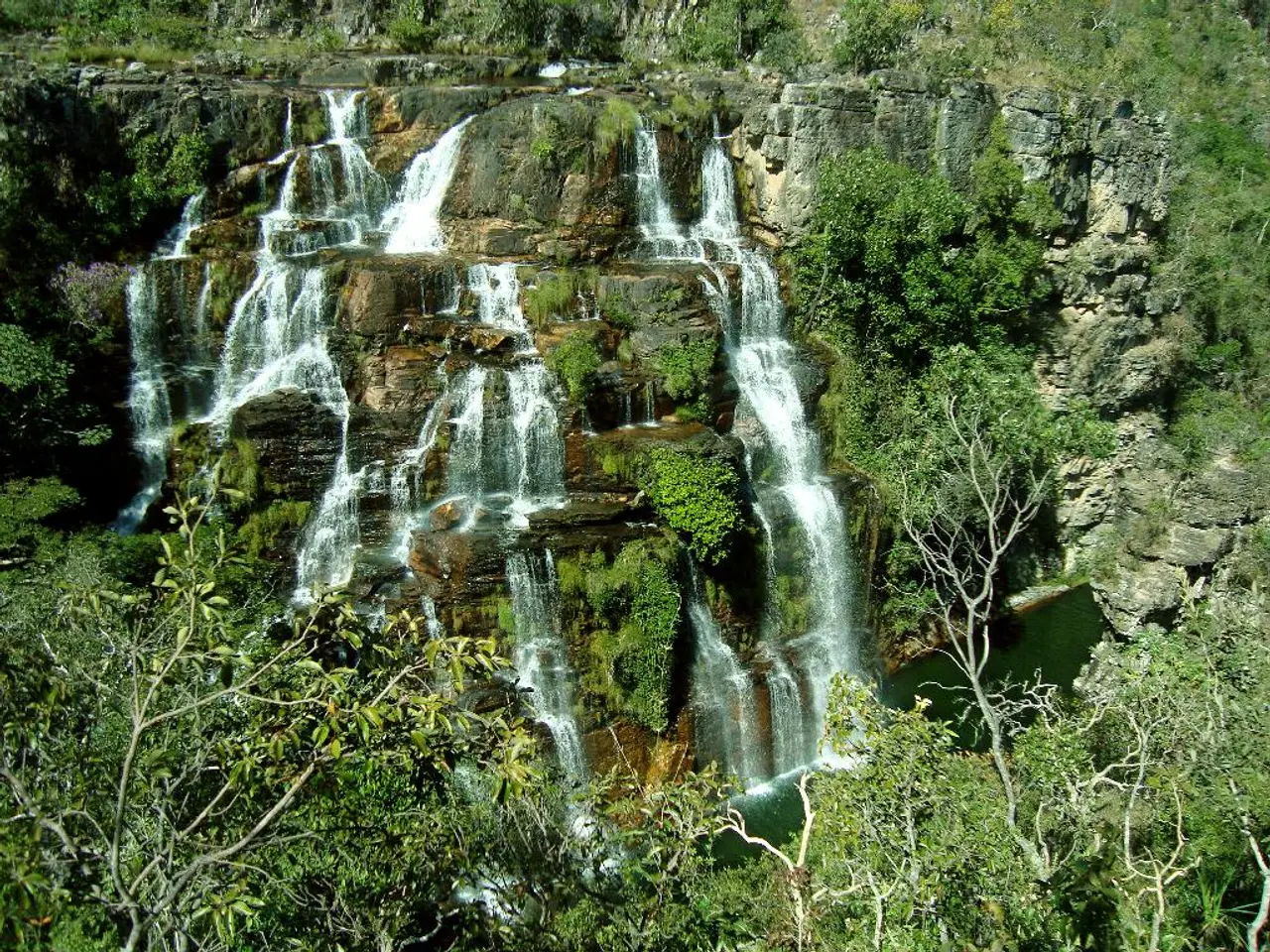Inland water shortage reaches the second highest alert level, as announced by the Balearic government.
The Balearic Islands are currently grappling with a severe water crisis, as the average water reserves on Mallorca have decreased to 43% in July. This alarming figure is a five percentage point drop compared to June and a three percentage point decrease compared to the same month last year.
The situation is particularly critical in Mallorca, with the water reserves on the island falling to 46%, while Menorca and Ibiza have reserves of 40% and 29% respectively. Interestingly, the island of Formentera remains unaffected, with normal water levels.
The drought alarm, which is the second-highest alert level, has been declared in the Pla de Mallorca region by the Balearic government. This response comes in light of the worsening water scarcity situation and the expectation that groundwater levels will continue to drop in August.
In response to this alarm, specific water usage restrictions have been imposed in Mallorca. These restrictions include scheduled water cutoffs three days a week in certain areas such as Deià and urban areas like s’Empeltada, ses Coves de can Puigserver, la Cala, Llucalcari, affecting residents and luxury hotels like La Residencia and Costa d’Or. The purpose of these cutoffs is to allow reservoirs to recover amid critically low water reserves.
Additionally, bans on using tap water for non-essential purposes such as filling swimming pools, irrigating gardens, and washing cars have been in place since early July throughout Mallorca.
Preparations to declare emergency zones in regions like Pla de Mallorca to authorize government-funded water deliveries are also underway, highlighting the critical shortage situation.
Further restrictions, such as cancelling garden irrigation and limiting the use of private wells, are currently under consideration. However, specific details for these have not yet been officially communicated.
The crisis is aggravated by prolonged drought conditions, infrastructure challenges, and peak summer tourism demand. The impacts of the drought alarm on the tourism industry in the affected areas are yet to be seen and communicated.
More than 88 percent of the Balearic archipelago is in the "pre-alert" stage for water scarcity. The Balearic government expects the groundwater levels to continue dropping in August, indicating that the water crisis on Mallorca is escalating.
It is important to note that the crisis is not limited to Mallorca, as the water reserves on all three main islands have decreased. However, Ibiza has seen the most significant decrease among the main islands.
The Balearic government's declaration of a drought alarm is a crucial step towards addressing the water crisis. The specific impacts on citizens and visitors to the 14 smaller municipalities affected by the drought alarm are yet to be determined and communicated.
[1] Source: Balearic Government Press Release, August 2025 [2] Source: El Mundo, August 2025 [3] Source: Diario de Mallorca, August 2025 [4] Source: La Vanguardia, August 2025 [5] Source: RNE News, August 2025
- The Balearic government, recognizing the severity of the water crisis caused by factors such as climate-change, environmental-science, and weather, has implemented a drought alarm to address the issue, focusing on specific policies such as community policy and employment policy to conserve water in Mallorca.
- As the Balearic Islands grapple with a worsening water crisis, scientists have started assessing the impact of prolonged drought on various aspects, including the environment, science, and climate-change.







